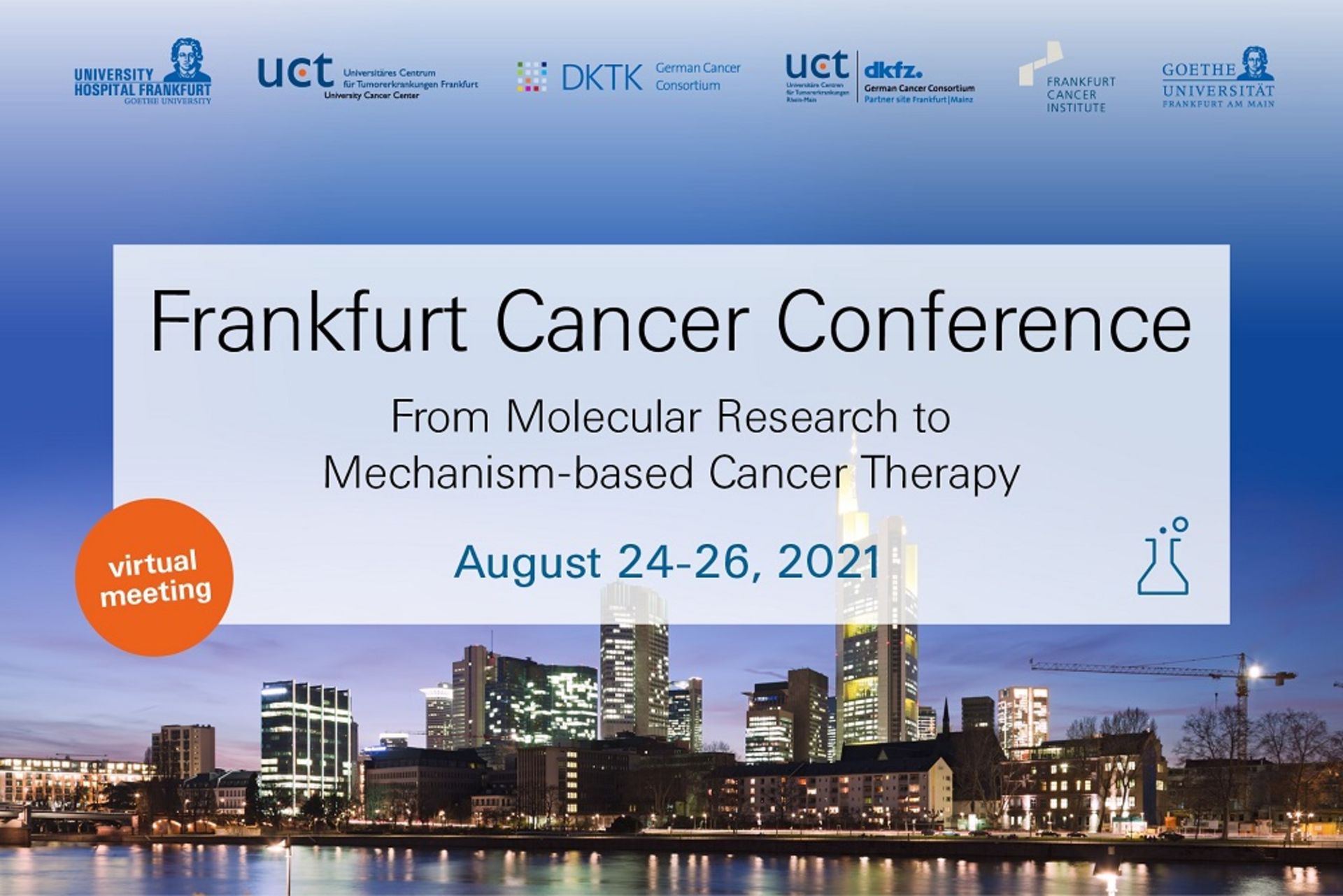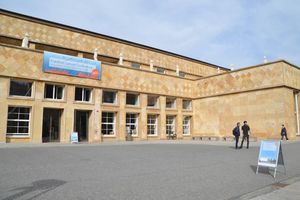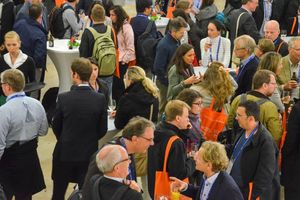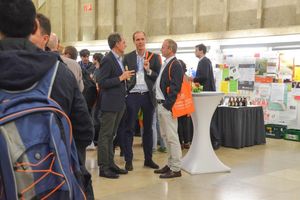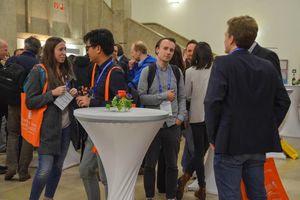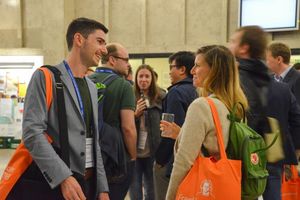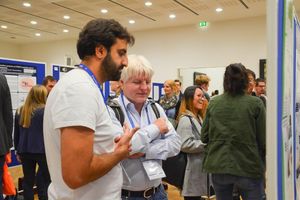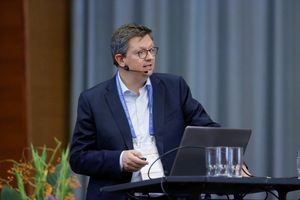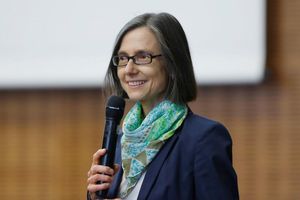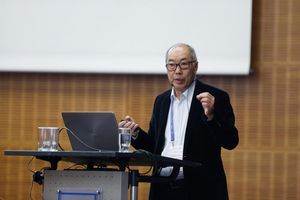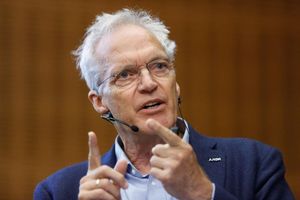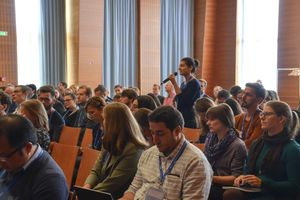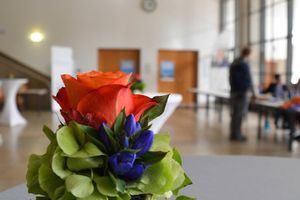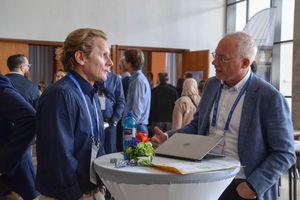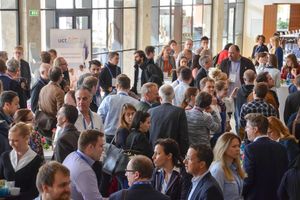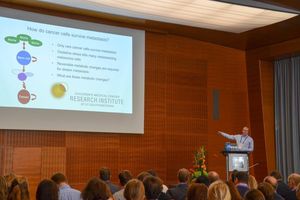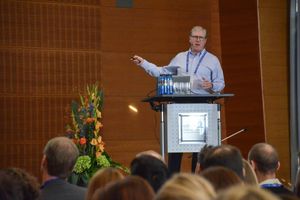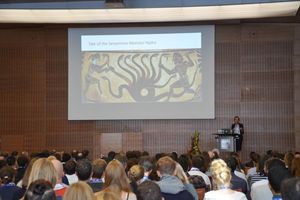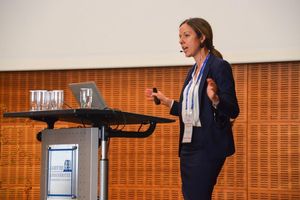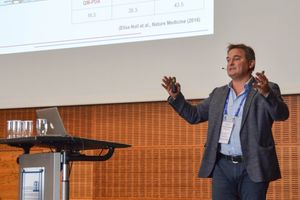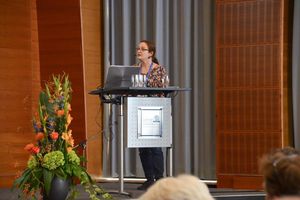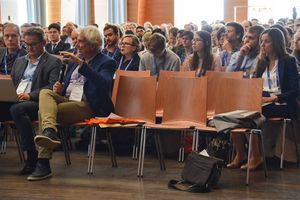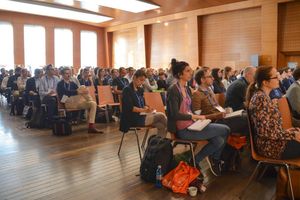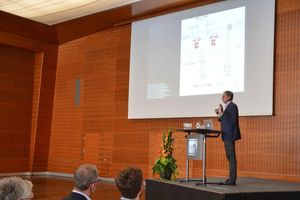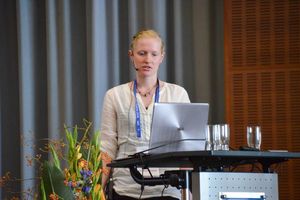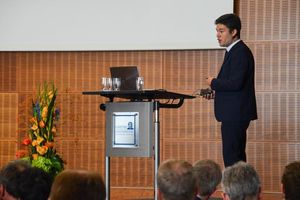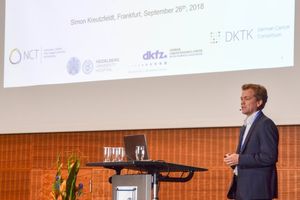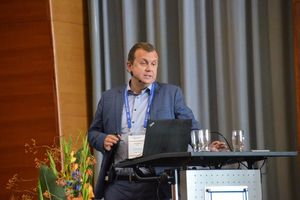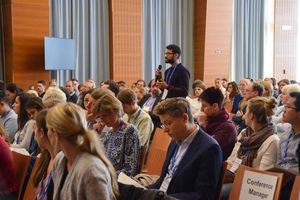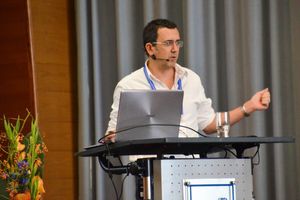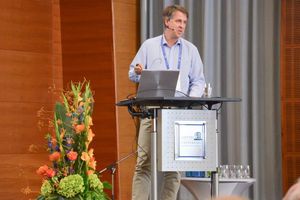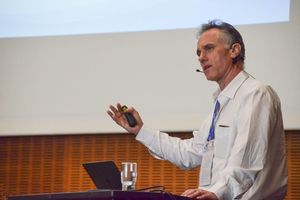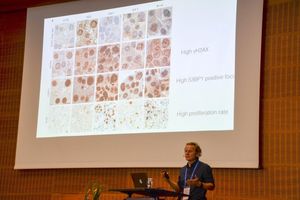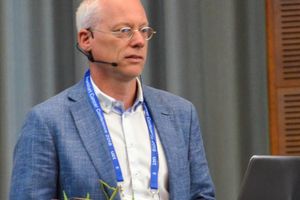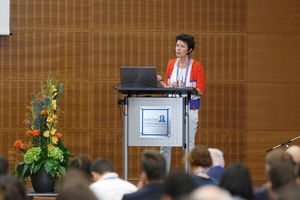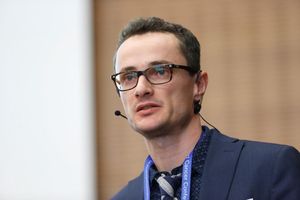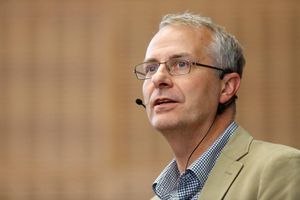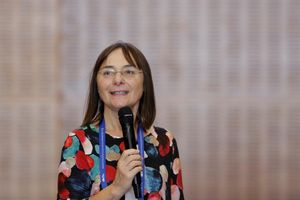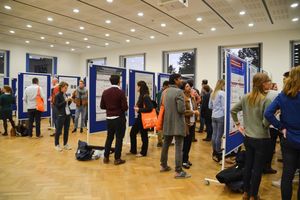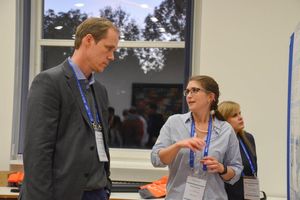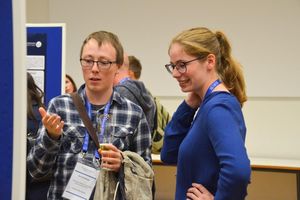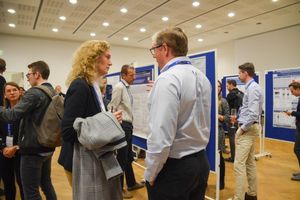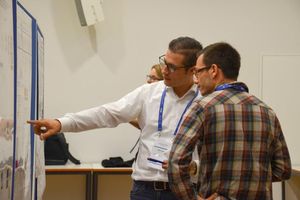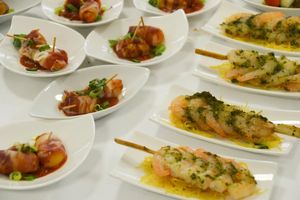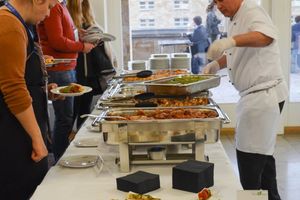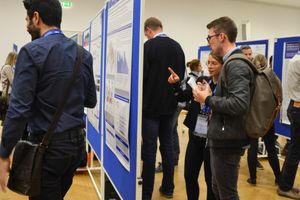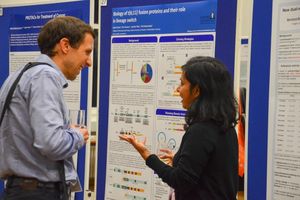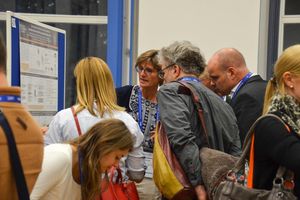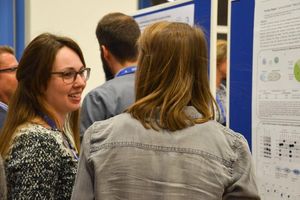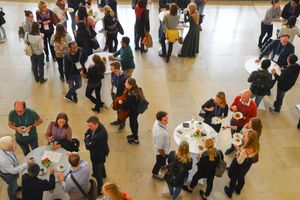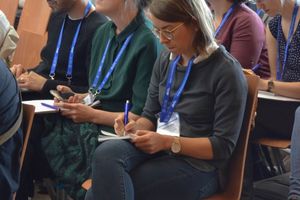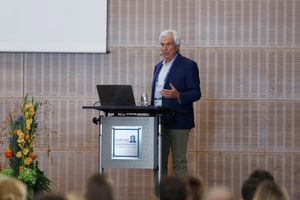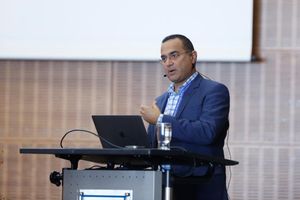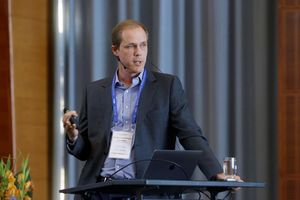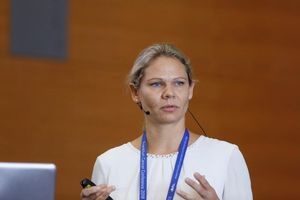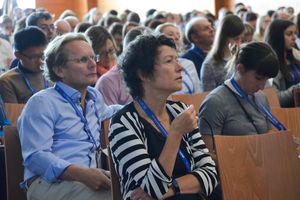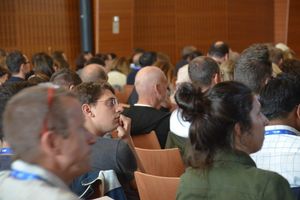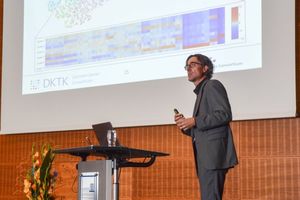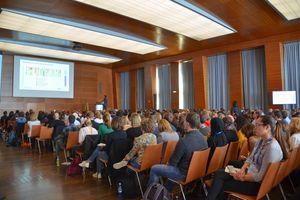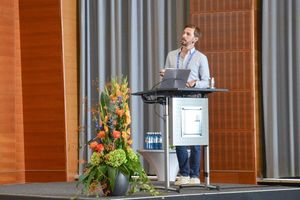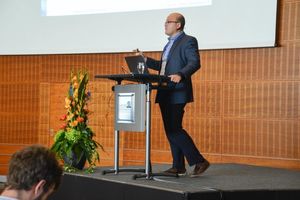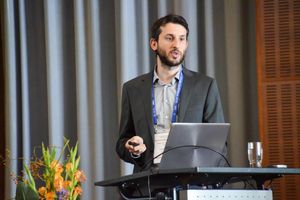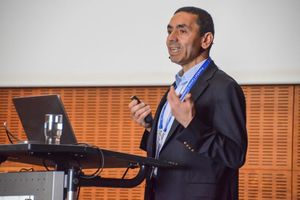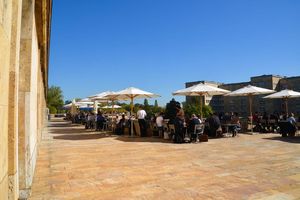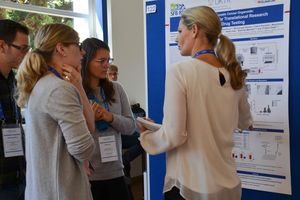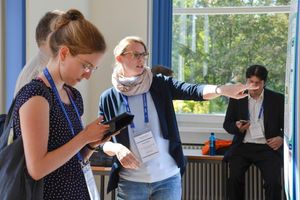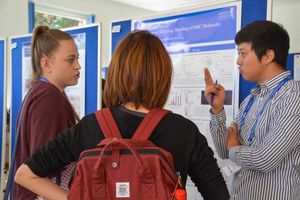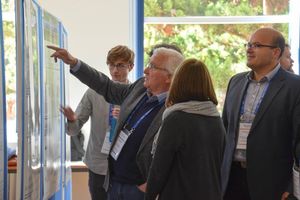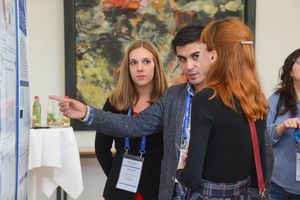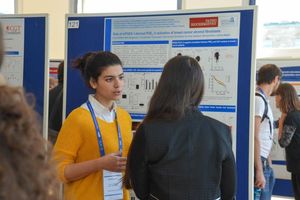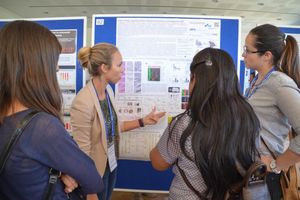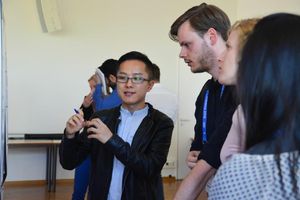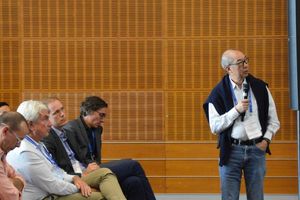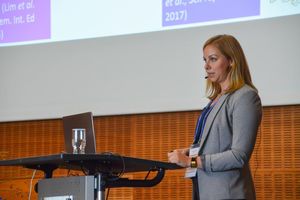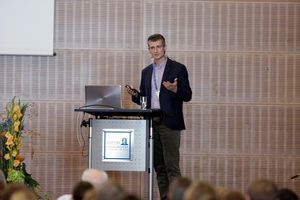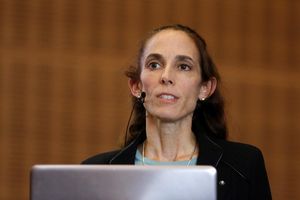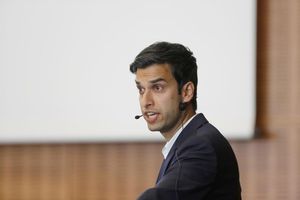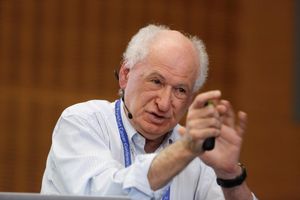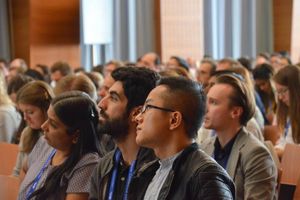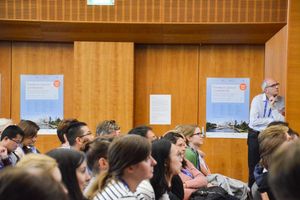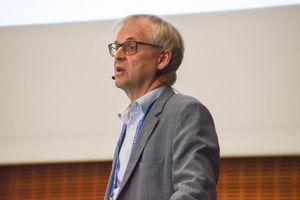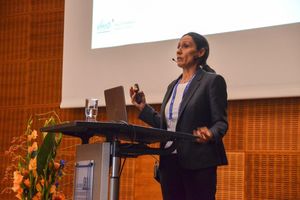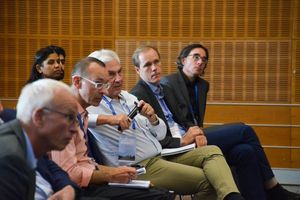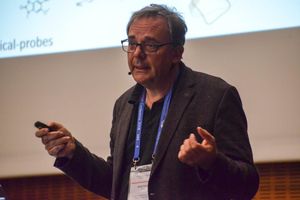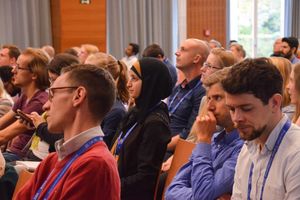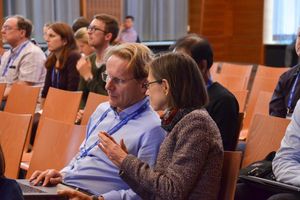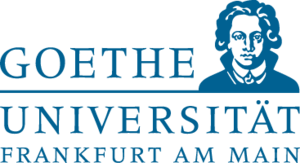
About the conference
The Frankfurt Cancer Conference is a meeting of internationally leading cancer researchers as well as junior scientists and oncologists. It was first held in 2018 and was originally planned as a biennial conference. Due to the world-wide Sars-CoV-2 pandemic, last year’s meeting was postponed to August 2021. As the current situation makes the organization of events much more difficult, we are prepared to short-term conceptual changes whenever they should become necessary.
According to the recent status, the conference will be held as a hybrid meeting with a limited number of speakers, chairs and participants gathering on site at the Goethe University Frankfurt and the major part of scientists participating online. Nevertheless, we try our best to again provide an attractive scientific platform for the presentation of excellent cancer research and for the exchange of knowledge and interaction with some of the world’s most renowned experts in the field.
In line with the recent COVID regulations, we are delighted to welcome a limited number of speakers and participants on site in Frankfurt at a hybrid conference. Please check this website regularly for any possible updates to COVID regulations affecting the on-site meeting!
From Molecular Research to Mechanism-based Cancer Therapy
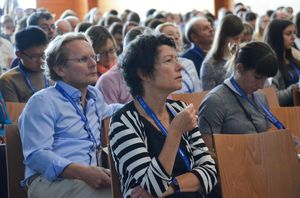
The main theme of the second Frankfurt Cancer Conference in August 2021 is “From Molecular Research to Mechanism-based Cancer Therapy”. The ongoing translational research activities of the University Cancer Center Frankfurt (UCT), the German Cancer Consortium (DKTK) in Frankfurt/Mainz, the Frankfurt Cancer Institute (FCI) and the Mildred Scheel Career Center (MSNZ) provide the framework for the conference, during which international, national and local research activities will be presented in nine interdisciplinary sessions and a couple of interactive online breakout sessions on the following topics:
- José Carreras Session on Leukemia
- Tumor Microenvironment & Inflammation
- Immunotherapy Beyond Checkpoint-Inhibition
- José Carreras Session on B-Cell Malignancies
- From Target Identification to Tumor Models
- Cancer Stem Cells & Cell Plasticity
- Oncogenic Pathways & Autophagy
- Tumor Development & Metastasis
- Innovations in Drug Development
Target audience
The conference adresses basic and translational cancer researchers as well as oncologists who are interested in cancer signaling, novel cancer therapies and mechanism-based clinical trials. We want to encourage both early-career as well as established medical and clinician scientists in oncology to participate and virtually discuss with the international community. Even though the meeting may be virtual, there will be opportunities to interact with top experts in the field of cancer research and to establish or deepen collaborations in an inspiring atmosphere.
It is of great concern to the organizers to promote young scientists at the beginning of their careers in cancer research. Thus, the program was planned in close interaction with the German Mildred Scheel Career Centers (MSNZ) with a prominent role for MSNZ fellows in the program and a couple of interactive Q&A sessions with key experts especially targeted at young scientists.
Scientific Organizing Committee
Prof. Dr. Thomas Oellerich
Chair of Scientific Organizing Committee
Department of Medicine, Hematology/Oncology
Goethe University Frankfurt
German Cancer Consortium (DKTK) Frankfurt/Mainz
Prof. Dr. Christian Brandts
Co-Chair of Scientific Organizing Committee
Department of Medicine, Hematology/Oncology
University Cancer Center (UCT) Frankfurt
Goethe University Frankfurt
German Cancer Consortium (DKTK) Frankfurt/Mainz
Prof. Dr. Ivan Dikic
Institute of Biochemistry II
Buchmann Institute for Molecular Life Sciences
University Cancer Center (UCT) Frankfurt
Goethe University Frankfurt
German Cancer Consortium (DKTK) Frankfurt/Mainz
Prof. Dr. Florian Greten
Frankfurt Cancer Institute (FCI)
Goethe University Frankfurt
German Cancer Consortium (DKTK) Frankfurt/Mainz
Prof. Dr. Stefan Knapp
Institute for Pharmaceutical Chemistry
Goethe University Frankfurt
German Cancer Consortium (DKTK) Frankfurt/Mainz
Prof. Dr. Karlheinz Plate
Institute for Neurology (Edinger Institute)
University Cancer Center (UCT) Frankfurt
Goethe University Frankfurt
German Cancer Consortium (DKTK) Frankfurt/Mainz
Prof. Dr. Claus Rödel
Department of Radiation Therapy and Oncology
University Cancer Center (UCT) Frankfurt
Goethe University Frankfurt
German Cancer Consortium (DKTK) Frankfurt/Mainz
Prof. Dr. Hubert Serve
Department of Medicine, Hematology/Oncology
University Cancer Center (UCT) Frankfurt
Goethe University Frankfurt
German Cancer Consortium (DKTK) and DKFZ
Prof. Dr. Joachim Steinbach
Dr. Senckenberg Institute of Neurooncology
University Cancer Cancer (UCT) Frankfurt
Goethe University Frankfurt
German Cancer Consortium (DKTK) Frankfurt/Mainz
Prof. Dr. Peter Wild
Senckenberg Institute of Pathology
University Cancer Cancer (UCT) Frankfurt
Goethe University Frankfurt
German Cancer Consortium (DKTK) Frankfurt/Mainz
PD Dr. Fabian Finkelmeier
Junior Representative
Department of Medicine, Gastroenterology/Pneumology/Endocrinology
Goethe University Frankfurt
German Cancer Consortium (DKTK) Frankfurt/Mainz
Dr. Manuel Kaulich
Junior Representative
Institute of Biochemistry II
Goethe University Frankfurt
German Cancer Consortium (DKTK) Frankfurt/Mainz
Dr. Lisa Sevenich
Junior Representative
Institute for Tumor Biology and Experimental Therapy (Georg-Speyer-Haus)
Goethe University Frankfurt
German Cancer Consortium (DKTK) Frankfurt/Mainz
Speakers
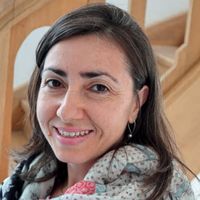
Canan Arkan
Georg-Speyer-Haus Institute for Tumor Biology and Experimental Therapy
Goethe University Frankfurt
Frankfurt, DE
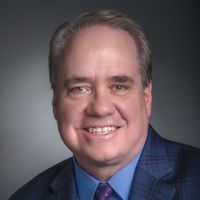
Scott Armstrong
Dana-Farber Cancer Institute
Harvard Medical School
Boston, US
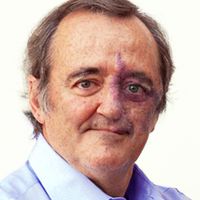
Mariano Barbacid
Centro Nacional de Investigaciones Oncológicas
Madrid, ES
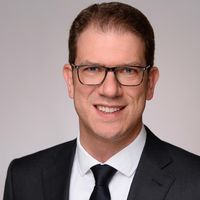
Florian Bassermann
Department of Internal Medicine III
Technical University of Munich
Munich, DE
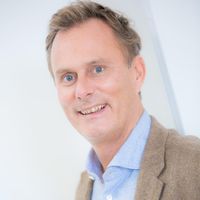
Cédric Blanpain
Laboratory of Stem Cells and Cancer
Université libre de Bruxelles
Brussels, BE
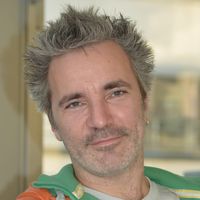
Halvard Bönig
Institute for Transfusion Medicine and Immunohaematology
Goethe University Frankfurt
Frankfurt, DE
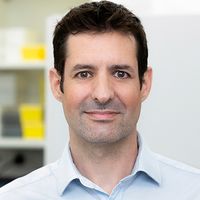
Igor Cima
DKFZ-Division Translational Neurooncology
University Hospital Essen
Essen, DE
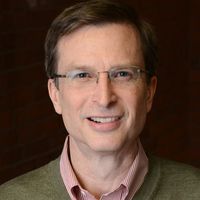
Craig Crews
Department of Molecular, Cellular and Developmental Biology
Yale University
New Haven, US
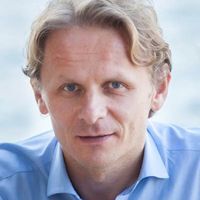
Ivan Đikić
Institute of Biochemistry II
Goethe University Frankfurt
Frankfurt, DE
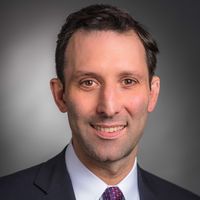
Benjamin L. Ebert
Dana-Farber Cancer Institute
Harvard Medical School
Boston, US
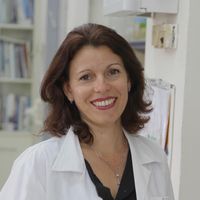
Neta Erez
Department of Pathology, Sackler School of Medicine
Tel Aviv University
Tel Aviv, IL
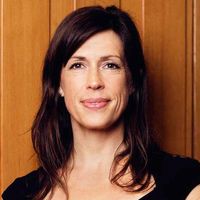
Janine Erler
Biotechnology Research & Innovation Centre (BRIC)
University of Copenhagen
Copenhagen, DK
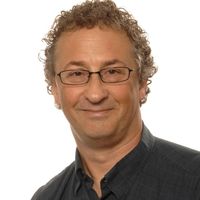
Gerard Evan
Department of Biochemistry
University of Cambridge
Cambridge, UK
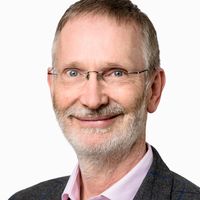
Tony Green
Department of Hematology
University of Cambridge
Cambridge, UK
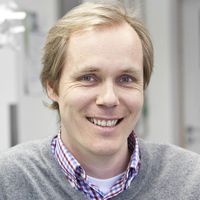
Florian Greten
Georg-Speyer-Haus Institute for Tumor Biology and Experimental Therapy
Goethe University Frankfurt
Frankfurt, DE
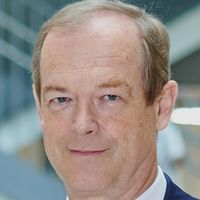
Michael Hallek
Department I of Internal Medicine
University Hospital Cologne
Cologne, DE
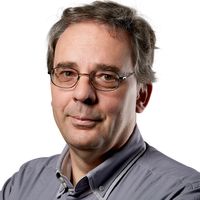
Stefan Knapp
Institute for Pharmaceutical Chemistry
Goethe University Frankfurt
Frankfurt, DE
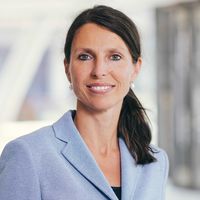
Claudia Lengerke
Department of Internal Medicine II
University Hospital Tübingen
Tübingen, DE
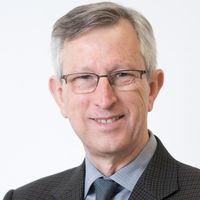
Joan Massagué
Sloan Kettering Institute
Memorial Sloan Kettering Cancer Center
New York, US
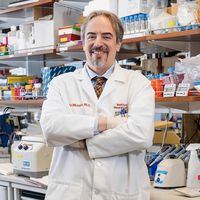
Ari M. Melnick
Division of Hematology & Medical Oncology
Weill Cornell Medicine
New York, US
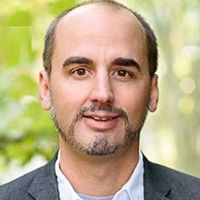
Markus Müschen
Center of Molecular and Cellular Oncology
Yale School of Medicine
New Haven, US
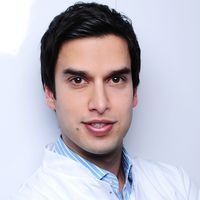
Thomas Oellerich
Department of Medicine, Hematology/Oncology,
Goethe University Frankfurt
Frankfurt, DE
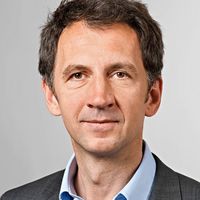
Jürgen Ruland
Institute for Clinical Chemistry and Pathobiochemistry
Technical University of Munich
Munich, DE
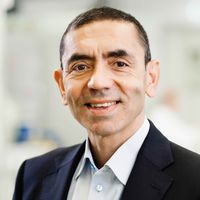
Uğur Şahin
BioNTech SE
Mainz, DE
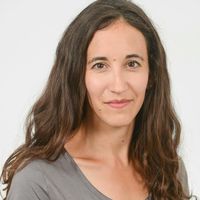
Ruth Scherz-Shouval
Department of Biomolecular Sciences
Weizmann Institute of Science
Rehovot, IL
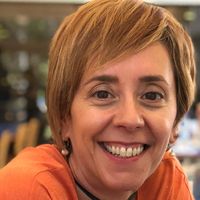
María S. Soengas
Centro Nacional de Investigaciones Oncológicas
Madrid, ES
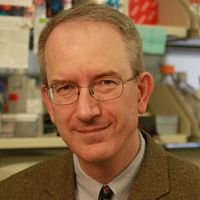
Louis M. Staudt
National Cancer Institute
National Institute of Health
Bethesda, US
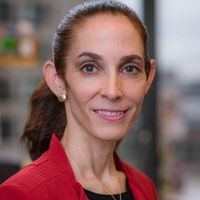
Kimberly Stegmaier
Dana-Farber Cancer Institute
Harvard Medical School
Boston, US
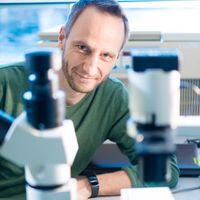
Jacco van Rheenen
Division of Molecular Pathology
Netherlands Cancer Institute
Amsterdam, NL
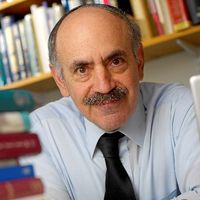
Robert A. Weinberg
Whitehead Institute for Biomedical Research
Massachusetts Institute of Technology
Cambridge, US
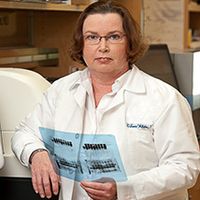
Eileen White
Rutgers Cancer Institute of New Jersey
New Brunswick, USA
Young Researchers / Mildred Scheel Career Center
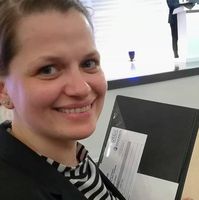
Gabriele Büchel
Biocenter
University of Würzburg
Würzburg, DE
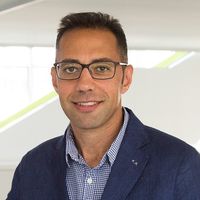
Mohamed Elgendy
Medical Clinic I
Technical University Dresden
Dresden, DE
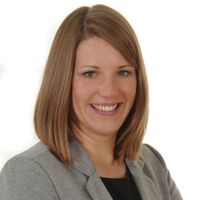
Nicole Glodde
Institute for Experimental Oncology
University Hospital Bonn
Bonn, DE
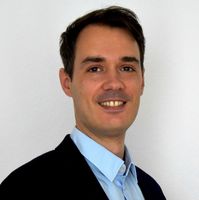
Mark Schmitt
Institute of Pharmacology
University of Marburg
Marburg, DE
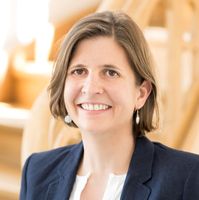
Lisa Sevenich
Georg-Speyer-Haus Institute for Tumor Biology and Experimental Therapy
Goethe University Frankfurt
Frankfurt, DE
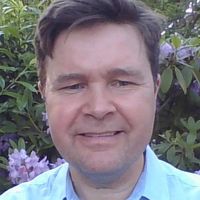
Stefan Werner
Department of Tumor Biology
University Medical Center Hamburg-Eppendorf
Hamburg, DE
Conference Program
| TIME | PROGRAM – Tuesday, 24 August 2021 | 14:00 - 18:15 CEST |
|---|---|
| 12:00-14:00 13:00-14:00 | Arrival and Registration (on-site) Virtual Networking |
| 14:00 | Welcome & Introduction Thomas Oellerich, Goethe University Frankfurt, DE |
| 14:10-16:40 | Session 1 – Pathogenic Mechanisms in Leukemia Session Chairs: Anjali Cremer & Jan-Henning Klusmann |
| 14:10-14:30 | Scott Armstrong, Dana-Farber Cancer Institute, Boston, US: Chromatin complexes and gene expression in cancer |
| 14:40-15:00 | Tony Green, University of Cambridge, Cambridge, UK: Stem cell subversion and myeloid malignancies |
| 15:10-15:30 | Kimberly Stegmaier, Dana-Farber Cancer Institute, Boston, US: A CRISPR screening pipeline to identify new therapeutic targets in AML |
| 15:40-16:00 | Thomas Oellerich, Goethe University Frankfurt, DE: Elucidation of pathogenic mechanisms in acute myeloid leukemia by integrated proteogenomics |
| 16:10-16:30 | Benjamin L. Ebert, Dana-Farber Cancer Institute, Boston, US: Targeted protein degradation for the treatment of cancer |
| 16:40-17:10 | Interactive MSNZ Career Session with Kimberly Stegmaier: How to plan a successful career as Clinician Scientist in parallel: Coffee Break |
| 17:10-17:50 17:50-18:05 | Keynote Lecture Introduction: Manuel Kaulich Robert A. Weinberg, Whitehead Institute for Biomedical Research, Boston, US: Epigenetic plasticity and carcinoma progression Discussion |
| 18:15 | Virtual Networking |
| TIME | PROGRAM – Wednesday, 25 August 2021 | 09:00 - 19:15 CEST |
|---|---|
| 08:30-09:00 | Registration (on-site) |
| 09:00-10:30 | Session 2 – Tumor Microenvironment & Inflammation Session Chairs: Elke Pogge von Strandmann & Florian Greten |
| 09:00-09:20 | Ruth Scherz-Shouval, Weizmann Institute of Science, Rehovot, IL: Transcriptional reprogramming of CAFs by cancer mutations and stress responses |
| 09:30-09:50 | Florian Greten, Georg-Speyer-Haus, Frankfurt, DE: CAF plasticity determines therapy response in rectal cancer |
| 10:00-10:20 | Neta Erez, Sackler School of Medicine, Tel Aviv, IL: Systemic instigation of neuroinflammation facilitates brain metastasis |
| 10:30-11:00 | Coffee Break |
| 11:00-12:30 | Session 3 – Immunotherapy Beyond Checkpoint-Inhibition Session Chairs: Evelyn Ullrich & Joachim Steinbach |
| 11:00-11:20 | Claudia Lengerke, University Hospital Tübingen, DE: How immunogenic are tumor stem cells? |
| 11:30-11:50 | Jürgen Ruland, Technical University of Munich, DE: Oncogenic TCR signaling in T cell lymphoma |
| 12:00-12:10 | Nicole Glodde, University of Bonn, DE: Short Talk: Target antigen dynamics in T cell therapy of melanoma |
| 12:15-12:25 | Halvard Bönig, Goethe University Frankfurt, DE: Short Talk: CAR-effector cells at Goethe University Frankfurt – swaggers and stumbles |
| 12:45-13:15 12:30-14:00 | Interactive MSNZ Career Session with Eileen White: How to promote women in science in parallel: Lunch Break |
| 14:00-16:00 | Session 4 – Oncogenic Pathways in B Cell Malignancies Session Chairs: Andreas Neubauer & Thomas Oellerich |
| 14:00-14:20 | Markus Müschen, Yale School of Medicine, New Haven, US: Central tolerance mechanisms as therapeutic targets in B cell malignancies |
| 14:30-14:50 | Florian Bassermann, Technical University of Munich, DE: Aberrant ubiquitin networks in B cell malignancies |
| 15:00-15:20 | Ari M. Melnick, Weill Cornell Medicine, New York, US: Novel pathways of immune system malignant transformation |
| 15:30-15:50 | Michael Hallek, University Hospital Cologne, DE: Molecular and cellular components of the microenvironment of chronic lymphocytic leukemia and translation into novel therapeutic concepts |
| 16:00-16:40 16:40-16:55 | Keynote Lecture Introduction: Thomas Oellerich Louis Staudt, National Cancer Institute, Bethesda, US: Genetic subtyping of diffuse large B cell lymphoma and the efficacy of BTK inhibitors Discussion |
| 17:00-17:20 | Coffee Break |
| 17:20-19:05 | Session 5 – From Target Identification to Tumor Models Session Chairs: Lisa Sevenich & Peter Wild |
| 17:20-17:40 | Mariano Barbacid, Centro Nacional de Investigaciones Oncológicas, Madrid, ES: Targeting KRAS Mutant Cancers: Light at the end of the tunnel |
| 17:50-18:10 | Janine Erler, University of Copenhagen, DK: Targeting the metastatic niche |
| 18:20-18:40 | Joan Massagué, Memorial Sloan Kettering Cancer Center, New York, US: Metastasis initiating cells and ecosystems |
| 18:50-19:00 | Canan Arkan, Georg-Speyer-Haus, Frankfurt, DE: Short Talk: Diet and Microbiome: when the poison is the cure |
| 19:15 | Conference Dinner (on-site) Virtual Networking |
| TIME | PROGRAM – Thursday, 26 August 2021 | 09:00 - 17:45 CEST |
|---|---|
| 08:30-09:00 | Registration (on-site) |
| 09:00-10:30 | Session 6 – Cancer Stem Cells & Cell Plasticity Session Chairs: Hind Medyouf & Hubert Serve |
| 09:00-09:20 | Cédric Blanpain, Université libre de Bruxelles, Brussels, BE: Mechanisms regulating tumor transition states |
| 09:30-09:50 | María S. Soengas, Centro Nacional de Investigaciones Oncológicas, Madrid, ES: Imaging and targeting (pre-)metastatic niches |
| 10:00-10:10 | Mohamed Elgendy, Technical University Dresden, DE: Short Talk: Metabolic plasticity of tumors: Some drive hybrid |
| 10:15-10:25 | Igor Cima, University Hospital Essen, DE: Short Talk: Tumor-associated hematopoietic stem and progenitor cells in glioblastoma |
| 10:30-11:45 | Session 7 – Oncogenic Pathways & Autophagy Session Chairs: Eva Rettinger & Christian Brandts |
| 10:30-10:50 | Eileen White, Rutgers Cancer Institute of New Jersey, New Brunswick, US: Role of autophagy in regulating the anti-cancer immune response |
| 11:00-11:10 | Mark Schmitt, University of Marburg, DE: Short Talk: Cell death induced paracrine survival signals in colorectal cancer |
| 11:15-11:35 | Ivan Đikić, Goethe University Frankfurt, DE: Ubiquitin system in cancer pathogenesis & therapy |
| 11:45-12:15 | Coffee Break |
| 12:15-13:45 | Session 8 – Tumor Development & Metastasis Session Chairs: Henner Farin & Claus Rödel |
| 12:15-12:35 | Jacco van Rheenen, The Netherlands Cancer Institute, Amsterdam, NL: Field cancerization in mammary tissue is driven by protection mechanisms that clear mutations |
| 12:45-12:55 | Lisa Sevenich, Georg-Speyer-Haus, Frankfurt, DE: Short Talk: Compensatory CSF2-driven macrophage activation promotes adaptive resistance to CSF1R inhibition in breast-to-brain metastasis |
| 13:00-13:10 | Stefan Werner, University Medical Center Hamburg-Eppendorf, Hamburg, DE: Short Talk: Retinoic acid-induced 2 driven polymerization regulates the corepressor activity of C-terminal binding proteins in cancer cells |
| 13:15-13:35 | Gerard Evan, University of Cambridge, UK: Where cancers come from and how to make them go away |
| 13:45-15:15 | Lunch Break |
| 15:15-16:30 | Session 9 – Innovations in Drug Development Session Chairs: Aimo Kannt & Stefan Knapp |
| 15:15-15:35 | Craig M. Crews, Yale University, New Haven, US: PROTAC-mediated protein degradation: A new anti-tumor therapeutic modality |
| 15:45-15:55 | Gabriele Büchel, University of Würzburg, DE: Short Talk: Inducing transcription–replication conflicts as a therapy in neuroblastoma |
| 16:00-16:20 | Stefan Knapp, Goethe University Frankfurt, DE: Targeting E3 ligases for the development of selective protein degraders |
| 16:30-17:10 17:10-17:25 | Keynote Lecture Introduction: Christian Brandts Uğur Şahin, BioNTech SE, Mainz, DE: mRNA - developing a new pharmaceutical drug class Discussion |
| 17:25 | Closing Words Florian Greten, Georg-Speyer-Haus & Thomas Oellerich, Goethe University Frankfurt, DE |
| 17:45 | End of Conference |
Registration
Registration for the conference has closed.
Registration fee
The virtual participation fee for the Frankfurt Cancer Conference is 80.00 EUR.
The prospective on-site participation fee for the Frankfurt Cancer Conference would be 180.00 EUR (only if hygiene regulations allow it).
| Registration | Registration Fee | Deadline |
| Virtual participation | 80.00 EUR | July 10, 2021 |
| On-site participation (prospective) | 180.00 EUR | June 20, 2021 |
The virtual participation fee includes:
- Virtual access to all conference sessions
- Virtual access to online breakout sessions for interactive discussion wth experts
- All conference material via download
Deadlines
Registration deadline for optional on-site participation: June 20, 2021
Registration deadline for virtual participation: July 10, 2021
Payment deadline: July 31, 2021
Due to the current situation, the conference is outlined as virtual meeting. However, in case hygiene regulations would allow a limited number of on-site participants at the Westend Campus of Goethe University Frankfurt, we have included an optional checkbox for a prospective on-site participation in the registration form below.
Participants that have checked the on-site option in their registration form will in any case receive an invoice for the virtual participation fee of 80.00 EUR, payable within four weeks after reception of the invoice. Please do not pay the registration fee before you have received the invoice.
By 25 June 2021, the organizers will make the decision for on-site participation and potential on-site participants would be informed accordingly with an additional payment request of 100.00 EUR.
Online registration acknowledgements will be sent by automatic email. A final confirmation with details will be sent if payment is received on time.
Abstracts
Please note that due to the virtual concept of the conference and the hygiene restrictions on site, there will be no abstract submission and no poster sessions at this year's Frankfurt Cancer Conference.
Payment
Payment for virtual participation
Please note that your registration for virtual participation will only be complete upon payment of the registration fee (80.00 EUR).
Payment of conference fees can be completed only by SEPA bank transfer in advance of the meeting. Payment details will be provided with the invoice sent to you after registration. Please do not pay the registration fee before you have received the invoice. Please make sure that all bank fees are paid by the participants’ institution. Registration payments are VAT-exempt.
Payment for prospective on-site participation
After registration, you will first receive an invoice for the virtual participation fee of 80.00 EUR, payable within four weeks after reception of the invoice. Please note that your registration will only be complete upon payment of this fee (80.00 EUR)! Should on-site participation become possible, you will be informed accordingly with an additional payment request of 100.00 EUR.
Please note that the full payment for the optional on-site participation fee (180.00 EUR) can only be made after the organizers’ decision for a possible on-site meeting! Please do NOT pay the 180.00 EUR in advance!
Payment of all conference fees can be completed only by SEPA bank transfer. Payment details will be provided via e-mail together with the registration acknowledgement. Please make sure that all bank fees are paid by the participants’ institution. Registration payments are VAT-exempt.
Payment by credit card or cash is NOT possible!
As soon as payment has been received on our bank account, an email confirmation will be sent. Should you wish to receive an invoice, please contact uct-events@kgu.de.
Hybrid Meeting
The Frankfurt Cancer Conference 2021 will be held as a hybrid meeting with a limited number of speakers, participants and organizers gathering on-site at the Westend Campus of the Goethe University Frankfurt and the major part of speakers and participants taking part online via Zoom.
Having trouble or questions?
In case of organizational issues and questions or technical difficulties with Zoom or Wonder, please contact uct-events@kgu.de.
For urgent technical support during the conference, you may also contact our staff via phone number +49 151 / 17 19 10 93.

Address of on-site venue
Goethe University Frankfurt
Westend Campus
Theodor-W.-Adorno-Platz 1
60323 Frankfurt am Main
Casino building
Festsaal I (Room 823)
accessible by foot via Nina-Rubinstein-Weg
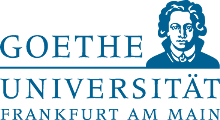
Contact
Chairs of the Scientific Organizing Committee
Prof. Dr. Thomas Oellerich
Department of Medicine II, Hematology/Oncology
University Hospital Frankfurt
Goethe University Frankfurt
German Cancer Consortium (DKTK) Frankfurt/Mainz
Prof. Dr. Christian Brandts
University Cancer Center (UCT) Frankfurt
Department of Medicine, Hematology/Oncology
University Hospital Frankfurt
Goethe University Frankfurt
German Cancer Consortium (DKTK) Frankfurt/Mainz
Conference Managers
Dr. Stefanie Graf
stefanie.graf@kgu.de
Tel: +49 (0)69 / 6301-87763
Mobile: +49 (0)151 / 17191093
Birgit Rosiejak
rosiejak@em.uni-frankfurt.de
Tel: +49 (0)69 / 6301-5459
Press Relations
Felicitas Cremer
felicitas.cremer@kgu.de
Tel: +49 (0)69 / 6301-87335
The Frankfurt Cancer Conference 2018
The Frankfurt Cancer Conference 2018 was attended by over 400 scientists from all over the world. During the two and a half day conference, a broad spectrum of international speakers presented their cutting-edge science and 140 posters were discussed.

